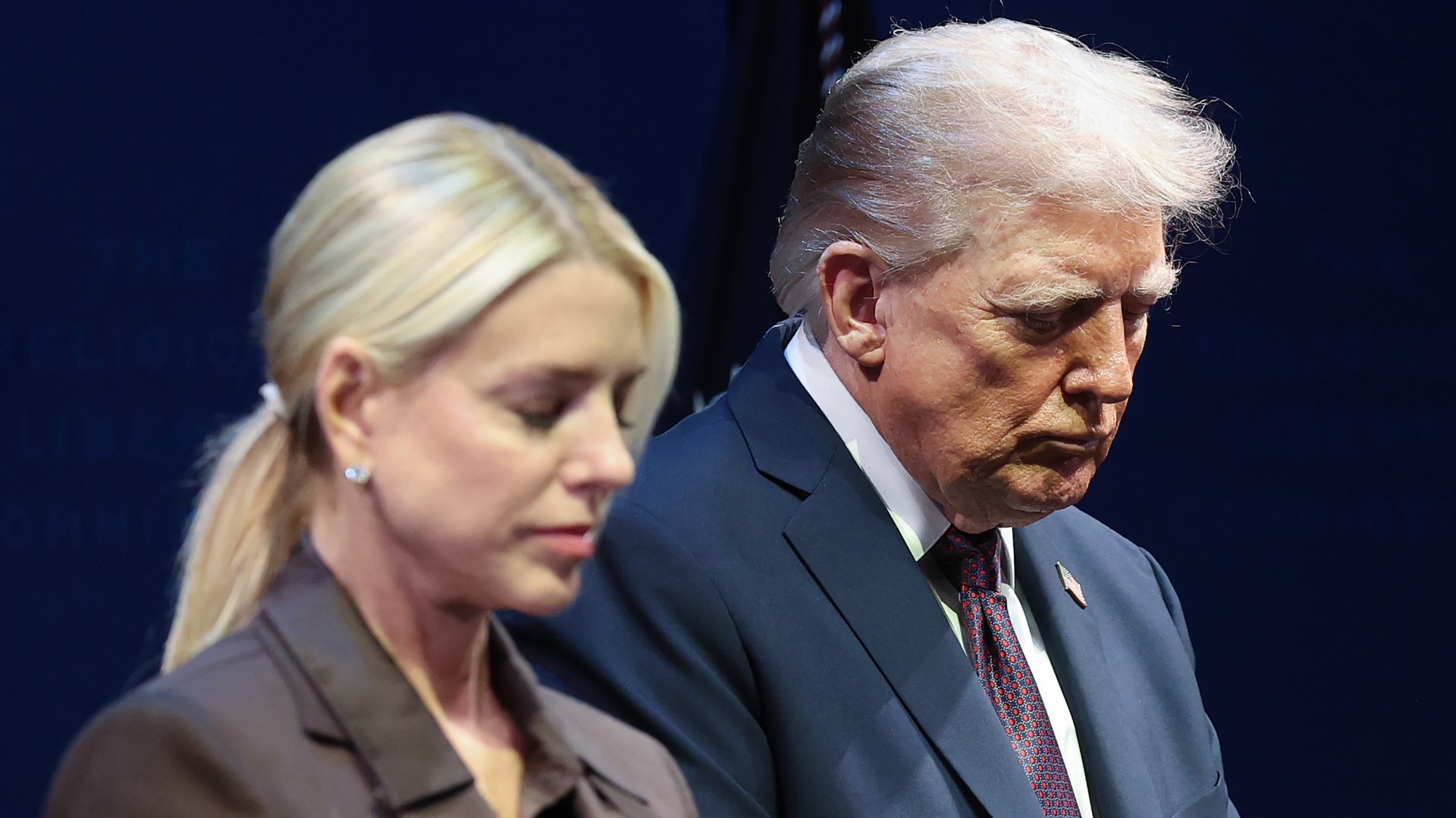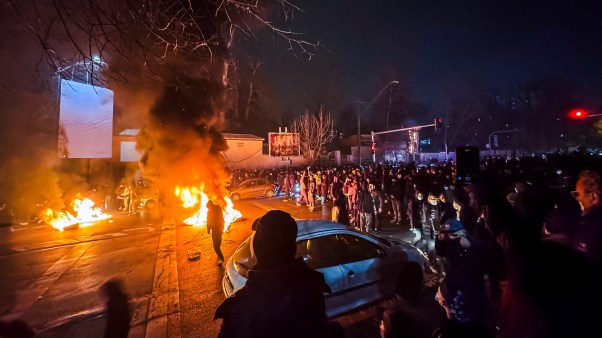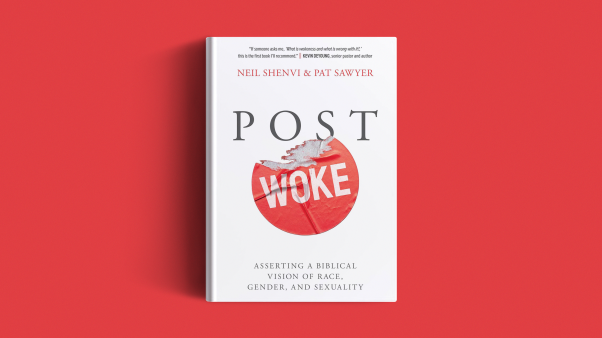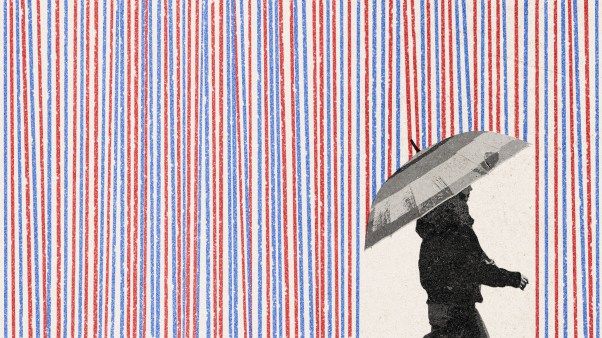This week the White House issued detailed prayer guidance, urging Americans to pray an hour a week for the country.
“Will you join with at least 10 people to meet each week for one hour to pray for America?” the White House site says.
President Donald Trump announced the initiative at the Museum of the Bible on Monday, surrounded by mostly Christian supporters.
“To have a great nation, you have to have religion,” said Trump, who considers himself a nondenominational Christian. Lee Greenwood’s “God Bless the USA” played at the opening of his remarks.
The US government has a history of weaving religious practice into government activity. Congress and the military established chaplains, and the House of Representatives hosted Sunday worship services early in the country’s history. Congress endorsed the Aitken Bible, according to James Hutson, a historian at the Library of Congress. Presidents other than Trump have also endorsed Bibles.
Legal scholars interviewed by CT considered the prayer initiative within the bounds of the Constitution, but other Christian leaders had concerns that people would see the prayers as an effort to support the initiatives of the Trump administration.
Michael Wear, the head of the Center for Christianity and Public Life, who also served in President Barack Obama’s White House faith-based office, said presidents of both parties have long asked for prayer.
“Anyone with any experience in our politics knows it would be foolish to claim the problem is that we are praying too much about our nation and the problems we face. We need prayer,” Wear told CT. “The kind of prayer politicians request is not always the kind of prayer they need.”
Many of Trump’s high-profile Christian supporters were present for the announcement, including Samaritan’s Purse head Franklin Graham, pastor Paula White-Cain, Faith and Freedom Coalition founder Ralph Reed, and radio host Eric Metaxas. They serve on his Religious Liberty Commission, whose members are mostly Christian, along with an Orthodox Jewish rabbi.
Philanthropists Steve and Jackie Green, part of the evangelical family who founded the Museum of the Bible, were also present. At the event, Trump presented to the museum the Trump family Bible, which his mother gave him and which he used at his two inaugurations.
“They are saying the Museum of the Bible, that more people come here than anywhere else,” Trump said. “I get a little involved with museums because I had a problem with the Smithsonian.”
It was Trump’s first visit to the museum, and his family Bible will be on display there as part of the Presidential Bibles Exhibit, according to a museum spokesperson.
At the gathering, Trump announced that the Department of Education would be issuing guidance “protecting the right to prayer in our public schools” but did not elaborate further on details. In his speech, Trump named his accomplishments like establishing a task force to investigate anti-Christian bias, establishing a tax credit for school-choice scholarships, and undoing the Johnson Amendment.
Speaking alongside Trump at the announcement was Scott Turner, the secretary of Housing and Urban Development, who is also a pastor at Texas megachurch Prestonwood Baptist and has led cabinet prayers.
“How many know that we have a godly and faithful cabinet?” said Turner. The White House press office has also posted videos on social media of Press Secretary Karoline Leavitt praying before briefings. Turner asked the audience to imagine the “miracles” that prayer would bring: “families coming back together, health being restored, financial needs being met.”
“On behalf of President Trump and ultimately the Lord God Almighty, who calls us to pray without ceasing, I am inviting all Americans to pray,” Turner said.
The White House prayer guidance gives “resources and ideas for times of prayer,” listing historical American prayers and suggestions for Bible verses to read to open prayer time “about God’s sovereignty and nations” (2 Chron. 7:14, Ps. 33:12, 1 Tim. 2:1–4). The guidance suggest the “ACTS prayer model: Adoration, Contrition, Thanksgiving, Supplication,” a popular Christian method.
The guide also suggests “prayer for government leaders, cultural renewal, protection of freedom, families, individuals, etc.” It also suggests joining online communities on Hallow, a Catholic prayer app, or Pray.com, among others.
Wear was concerned about the government providing guidance for how to pray, including directives for specific Scripture passages and models of prayer. He also worried that supporters of the initiative were largely political supporters of Trump, “which can contribute to confusion, at best, about the purpose and function of this request for prayer,” he said.
“I’m sure there are earnest believers associated with and supportive of this, not to mention Christians working in government who simply hope this prompts Americans to pray,” he said. “I encourage great care and thoughtfulness about the potential complications, consequences, and confusions that can derive from so closely associating godly intentions with political intentions.”
Pastor Mika Edmondson told CT that his Nashville church, Koinonia (part of the Evangelical Presbyterian Church), has been discussing the difference between patriotic prayers and nationalistic prayers.
Patriotic prayers are good, he said, and come from “our sincere desire for the nation to become the best version of itself.” Nationalistic prayers might “condone or excuse” what the nation does.
“We have to pray against injustice, against inequities, to keep the nation from sullying its own integrity,” he said. “We have to have a bigger vision for America than America has for itself.”
His nervousness about an initiative like this is that it could be using religion to “give a rubber stamp to what the government wants to do.”
“Worship and prayer are never a tool of manipulation. They are always a tool of submission to what our Lord wants to do,” he said. Jesus’ teaching on prayer “centers us on what God’s will is instead of what we want. Prayer is opening ourselves up to what God actually wants.”
Edmondson looked at 1 Timothy 2:1–4, referenced in the White House prayer guide, which urges prayer for those in authority “that we may live peaceful and quiet lives in all godliness and holiness.”
That passage, he said, was written at a time when the Roman emperor Nero had come to power.
“Christians were composed of people on the bottom of the socioeconomic situation. The idea that we would make petitions for those in authority … was actually so the boot of the Roman Empire would get off our necks,” he said. Sometimes people see the call to prayer as a way for the “flourishing of the agenda of the people on the top, when actually it’s a call to ask God to protect people on the bottom.”
Religious freedom scholars in interviews with CT largely agreed that the president’s call for prayer and prayer guidance was constitutional and did not violate the establishment clause, which prohibits the state from establishing a religion.
Carl Esbeck teaches constitutional law at the University of Missouri School of Law and has authored Supreme Court briefs on many religious liberty cases over the years.
He recently published an essay about some of the recent state laws requiring the display of the Ten Commandments in public school classrooms. Those laws are an establishment of religion, he argued, involving a “captive audience” of minor age and the potential “loss of a government benefit if the religious observance was refused.”
In contrast, “the suggestion to adults to pray is not an establishment,” he said in an email to CT. But he added that since religious pluralism exists in the US, pluralism “suggests that at most times officials, when speaking in official capacity, not be about protecting only Christians from discrimination.”
Michael McConnell, a former circuit court judge and another expert on the establishment clause, indicated he did not think the initiative was a violation either: “I’m not a great believer in politicians using prayer and religion as political opportunities, but just to say that it’s a violation of the establishment [clause] I think would be very difficult,” he told The Washington Post.
Participants in the prayer initiative mostly included Christian organizations: Samaritan’s Purse, Pray.com, Hallow, National Religious Broadcasters, and several large churches like First Baptist Church in Dallas.
Along with the prayer guidance, the White House released a booklet of 17 prayers from American history, ranging from the first Thanksgiving of the Pilgrims to a 1963 Martin Luther King Jr. prayer. It’s all part of preparations for the nation’s 250th anniversary.
Jesus’ teaching on prayer in Matthew 7 is “not that God gives the people exactly what they ask but that God gives good things,” said Edmondson. “That’s why we can have confidence praying for this country, because God will give a better answer than we ask. God will give a more just answer, a more equitable answer, a more life-giving answer.”












